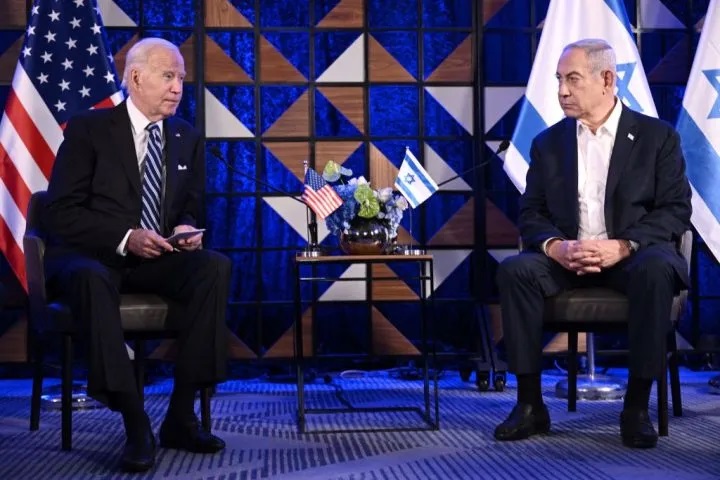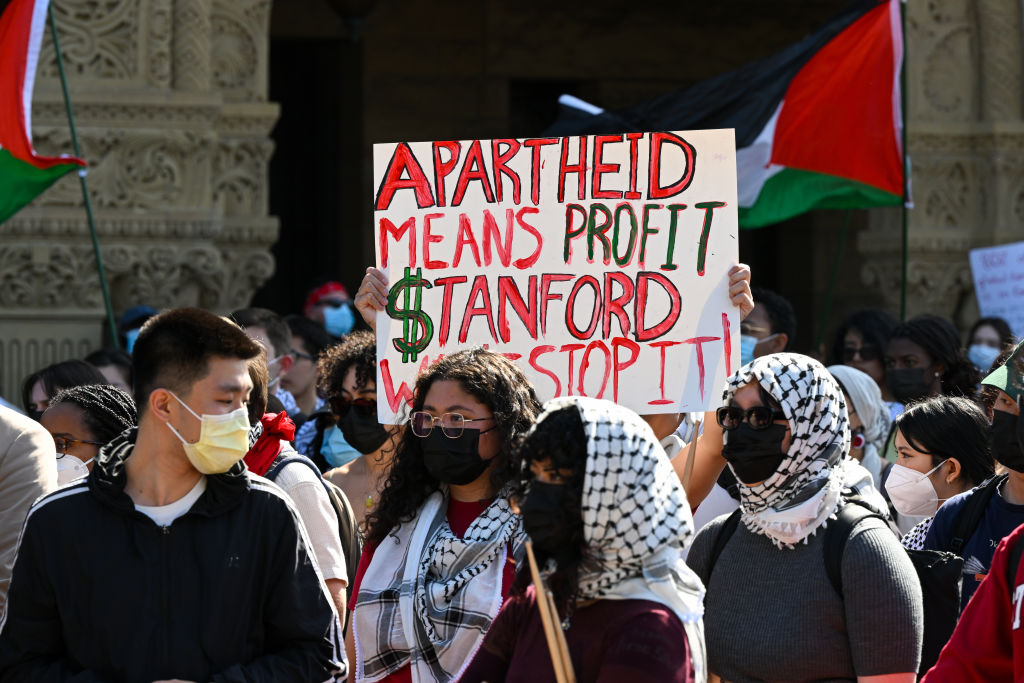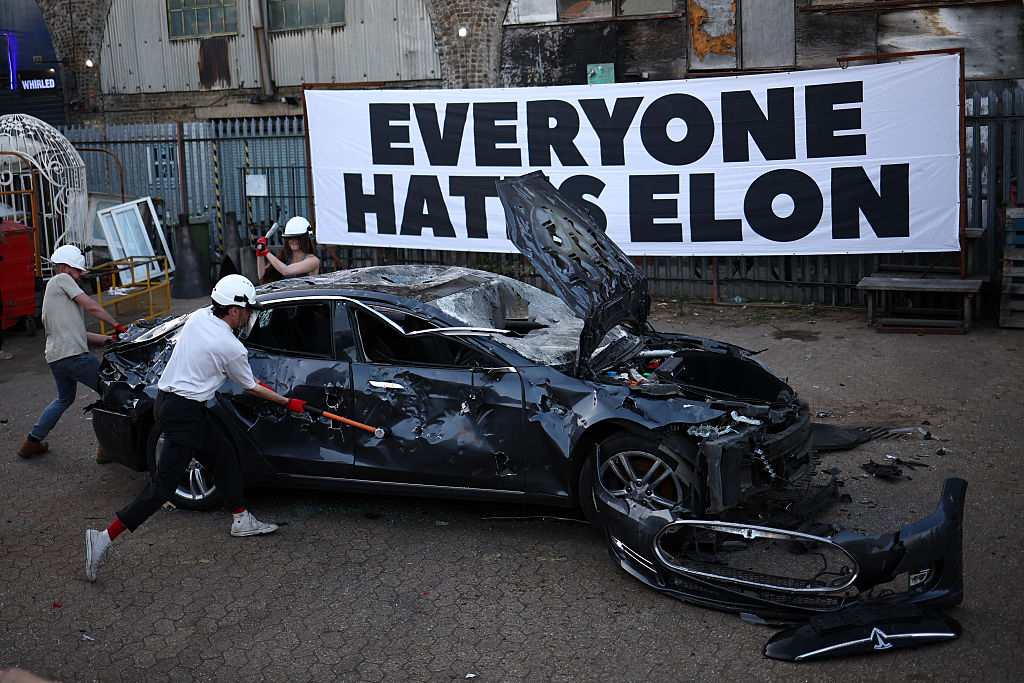In a surprising move, the United States has put forward a draft for a UN Security Council resolution calling for a temporary ceasefire between Israel and Hamas. The draft also opposes Israel’s planned operation in the southern Gaza city of Rafah.
President Joe Biden has stood firmly by his support for Israel’s right to defend itself in the wake of Hamas’s brutal attack on October 7. America has provided Israel with considerable munitions, as well as sent forces to deter attacks by Iran and the Iranian-backed military organization Hezbollah. They have also thwarted attacks against Israeli targets and and others by the Houthis in Yemen. The US senate also recently approved $14.3 billion in aid to Israel. The president has been clear that he fully supports the destruction of Hamas and restoring safety to Israelis.
Biden is concerned by the humanitarian crisis in Gaza, which would be exacerbated by an offensive on Rafah
Why, then, are the Americans putting forward a resolution that seems to contradict Israeli interests? The proposal was triggered by another UN resolution put forward by Algeria, which the US had planned to veto today. Algeria has proposed an immediate ceasefire which the US believed would benefit Hamas. The American proposal is meant to be a more balanced alternative, although it contains several issues that Israel is unhappy with.
Biden’s priorities still include putting an end to Hamas’s rule over Gaza and for the Israeli hostages abducted on October 7 to be released. However, he is also increasingly concerned by the humanitarian crisis in Gaza, which is likely to be exacerbated by an offensive on Rafah, where 1.4 million Palestinians have found refuge from the war.
Rafah is where many Hamas terrorists are hiding and where many of the Israeli hostages are believed to be held. This makes it an important strategic target in Israel’s war against Hamas. Therefore, although America’s proposal voices an opposition to a major assault on the city, it is unlikely that they will oppose limited Israeli military actions targeting terrorists there, as long as civilian casualty numbers are kept low. Israel’s ability to make sure humanitarian aid reaches civilians in the area, and across Gaza, undisrupted by fighting in Rafah will also be key.
The US has been involved in negotiations between Israel and Hamas for the release of Israeli hostages. So far, Hamas has firmly opposed any temporary ceasefire. Its leaders are demanding a full withdrawal of Israeli forces from Gaza and continued Hamas governance over the region. Negotiators from the US, Egypt and Qatar have gathered in Cairo to attempt to soften Hamas’s demands and bring a successful temporary ceasefire that will partially relieve the humanitarian crisis.
It’s a sensitive and crucial time in the negotiations. The terror group’s chief Ismail Haniyeh is reportedly due to arrive in the Egyptian capital with a Hamas delegation today. Israel worries that if a ceasefire is imposed, it will lose any leverage for placing pressure on the group, and the hostages’ fate will be doomed. Meanwhile, the US is worried that if the Algerian proposal is successful, negotiations could collapse.
The American proposal also expresses concern with Israel’s plan to create a temporary or permanent buffer zone between Gaza and Israel where IDF forces could remain after a ceasefire were reached. Biden has been advancing the notion of a reformed Palestinian Authority taking control over Gaza, uniting the Palestinians in Gaza and the West Bank under one moderate leadership. He believes that self-governance and autonomy are crucial for building a lasting truce and enhancing Israel’s security — not to mention Palestinian prosperity. A buffer zone under Israeli control would undermine that.
Israel’s perspective on this is markedly different. Israel suffered a large-scale invasion during which thousands of civilians were killed, raped or abducted from their homes. It is determined to restore the security and safety of its people. The PA is not only deeply unpopular among Palestinians, meaning it may not have a legitimate mandate to govern, but it has also resisted a peace settlement with Israel since its foundation in 1994 and in its earlier form as the Palestinian Liberation Organization.
The PA suffers from corruption and holds radical views that would undermine peace efforts and Israel’s security. If it is successfully “reformed,” Israel would require assurances from the organization for its safety if it’s to give up on holding a buffer zone.
The American proposal — which is currently in draft form and subject to change — concerns Israel. Although the US is an ally, and continues to support Israel’s goals, there are disagreements between the two sides. Biden also has little confidence in Israeli prime minister Benjamin Netanyahu and is convinced, rightly so, that Netanyahu allows personal and political interests to affect his decision-making. This proposal is has escalated the tension that exists between the two.
Biden’s support for Israel cannot be doubted — it’s his support for Netanyahu that is wavering. The American proposal is at once a way for the US to protect Israel from one-sided harmful UN resolutions, but also a warning that Netanyahu has to adopt policies that will promote a future long-lasting settlement rather than undermine its chances.
This article was originally published on The Spectator’s UK website.


























Leave a Reply